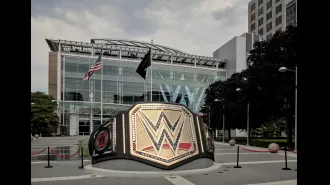MN celebrates first Black-owned Freight Farm, addressing food insecurity and agricultural disparities.
Boston company Freight Farms pioneered container farms, hydroponic systems that fit in freight containers and are available for purchase.
March 28th 2024.

In a proactive effort to address the pressing issues of food insecurity and inequalities in agriculture, rural Hennepin County in Minnesota is making a groundbreaking move by welcoming the state's very first Black-owned Freight Farm on March 27th. This cutting-edge solution offers a modern and sustainable approach to growing produce in confined spaces, according to a report by KARE11.
The pioneers behind this innovative concept are the Boston-based agriculture technology company, Freight Farms, who were the first to manufacture and distribute "container farms", also known as hydroponic farming systems that are designed to fit inside freight containers. Spearheaded by farmer Marcus Carpenter and his organization, Route 1, the arrival of the Minnesota Freight Farm marks a significant milestone in the ongoing battle against food insecurity and disparities in food access. "Today is an exciting day," remarked Carpenter, as a semi-truck carrying the freight farm completed its journey from Massachusetts to Medina in rural Hennepin County. "We are getting our very first Freight Farm. The crane is going to take the freight farm off the back of the truck."
Carpenter and his team are thrilled to finally get their hands in the dirt and explore ways to strategically support and uplift local #BIPOC farmers while also increasing #foodaccess for those communities in need. In a tweet, Route 1 expressed their gratitude to the American Family Institute for their support and added, "There's nothing more exciting than 'getting our hands in the dirt' and ideating ways in which we can strategically support local #BIPOC farmers while increasing #foodaccess for those communities in need. @amfaminstitute, thank you for coming! #Farming https://t.co/AxZML17lCu".
Freight Farms, headquartered in Boston, has been supplying farmers all over the world with repurposed shipping containers, enabling them to grow food efficiently within a controlled environment. For Carpenter and Route 1, this innovative approach not only yields fresh produce, but also provides opportunities for youth engagement and education. "Not only does this freight farm give us the ability to grow over 200 pounds of fresh produce per week, but it also gives us the opportunity to bring in youth who may not have had the chance to experience agriculture," Carpenter explained.
Route 1's commitment goes beyond just farming; their MN Seeds to Success Youth Academy offers hands-on agricultural and leadership education, addressing systemic barriers that have historically limited Black participation in farming. The significance of this endeavor is further highlighted by the broader context of agricultural inequities. Carpenter sheds light on the historical denial of government support to Black farmers, leading to their underrepresentation in the agricultural sector and exacerbating food insecurity in Black communities.
"The modern method of freight farming is meant to change that," Carpenter emphasized. "It gives us an opportunity to take good, clean, culturally relevant, nutritious food and place it right in the middle of some of our food deserts in our low to medium-income areas." With the support of American Family Insurance's social impact initiative, Route 1's freight farm represents a crucial step towards closing equity gaps and promoting sustainable community development.
Nyra Jordan, the social impact investment director for AmFam Institute, spoke about the importance of Route 1's multigenerational approach to farming and its potential to bring about positive change in Minnesota. "We have concerns around hunger in America," Jordan told the Daily Yonder. "But at the local level, and with the work that Route 1 is doing, there is a solution... We feel that by supporting markets and Route 1, it's an innovative business model that will equip farmers with the land and resources needed for a thriving farming operation. So, we're hoping that we can support economic opportunities and tackle hunger."
RELATED CONTENT: Local Lands, A Black-Owned Farm, Widens Reach For Georgia Residents To Combat Food Deserts
The pioneers behind this innovative concept are the Boston-based agriculture technology company, Freight Farms, who were the first to manufacture and distribute "container farms", also known as hydroponic farming systems that are designed to fit inside freight containers. Spearheaded by farmer Marcus Carpenter and his organization, Route 1, the arrival of the Minnesota Freight Farm marks a significant milestone in the ongoing battle against food insecurity and disparities in food access. "Today is an exciting day," remarked Carpenter, as a semi-truck carrying the freight farm completed its journey from Massachusetts to Medina in rural Hennepin County. "We are getting our very first Freight Farm. The crane is going to take the freight farm off the back of the truck."
Carpenter and his team are thrilled to finally get their hands in the dirt and explore ways to strategically support and uplift local #BIPOC farmers while also increasing #foodaccess for those communities in need. In a tweet, Route 1 expressed their gratitude to the American Family Institute for their support and added, "There's nothing more exciting than 'getting our hands in the dirt' and ideating ways in which we can strategically support local #BIPOC farmers while increasing #foodaccess for those communities in need. @amfaminstitute, thank you for coming! #Farming https://t.co/AxZML17lCu".
Freight Farms, headquartered in Boston, has been supplying farmers all over the world with repurposed shipping containers, enabling them to grow food efficiently within a controlled environment. For Carpenter and Route 1, this innovative approach not only yields fresh produce, but also provides opportunities for youth engagement and education. "Not only does this freight farm give us the ability to grow over 200 pounds of fresh produce per week, but it also gives us the opportunity to bring in youth who may not have had the chance to experience agriculture," Carpenter explained.
Route 1's commitment goes beyond just farming; their MN Seeds to Success Youth Academy offers hands-on agricultural and leadership education, addressing systemic barriers that have historically limited Black participation in farming. The significance of this endeavor is further highlighted by the broader context of agricultural inequities. Carpenter sheds light on the historical denial of government support to Black farmers, leading to their underrepresentation in the agricultural sector and exacerbating food insecurity in Black communities.
"The modern method of freight farming is meant to change that," Carpenter emphasized. "It gives us an opportunity to take good, clean, culturally relevant, nutritious food and place it right in the middle of some of our food deserts in our low to medium-income areas." With the support of American Family Insurance's social impact initiative, Route 1's freight farm represents a crucial step towards closing equity gaps and promoting sustainable community development.
Nyra Jordan, the social impact investment director for AmFam Institute, spoke about the importance of Route 1's multigenerational approach to farming and its potential to bring about positive change in Minnesota. "We have concerns around hunger in America," Jordan told the Daily Yonder. "But at the local level, and with the work that Route 1 is doing, there is a solution... We feel that by supporting markets and Route 1, it's an innovative business model that will equip farmers with the land and resources needed for a thriving farming operation. So, we're hoping that we can support economic opportunities and tackle hunger."
RELATED CONTENT: Local Lands, A Black-Owned Farm, Widens Reach For Georgia Residents To Combat Food Deserts
[This article has been trending online recently and has been generated with AI. Your feed is customized.]
[Generative AI is experimental.]
0
0
Submit Comment





